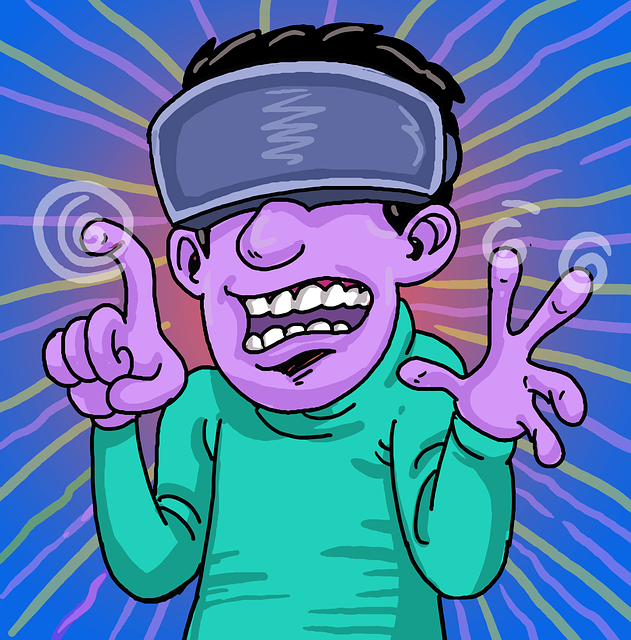Virtual therapy sessions emerge as a powerful solution for managing chronic stress, offering accessible, confidential online counseling platforms. These sessions utilize evidence-based practices like CBT and mindfulness to empower individuals to improve mental well-being from home, breaking down geographical barriers and fostering an inclusive therapeutic environment. With increased flexibility and convenience, virtual therapy is gaining popularity, addressing concerns through advanced technology and robust security measures, revolutionizing stress relief in today's digital era.
In today’s fast-paced world, stress has become an ever-present companion. Fortunately, online counseling through virtual therapy sessions offers a convenient and accessible solution for managing it. This article explores the growing trend of digital mental health support, delving into the benefits, preparation tips, and techniques behind successful virtual therapy. From understanding stress to transforming lives, discover how this modern approach can help you find calm amidst chaos.
Understanding Stress and Its Impact on Mental Health

Stress is a natural response to demanding situations, but chronic or prolonged stress can significantly impact mental health. It often manifests as feelings of anxiety, irritability, and difficulty concentrating. In today’s fast-paced world, where work, family, and social commitments are increasingly demanding, many individuals struggle to manage stress levels. Virtual therapy sessions offer a convenient and accessible solution for those seeking support in navigating these challenges.
Online counseling platforms provide a safe and confidential space for clients to explore the underlying causes of their stress and develop healthy coping mechanisms. Through interactive virtual therapy sessions, therapists can guide individuals through evidence-based practices such as mindfulness, cognitive behavioral therapy (CBT), and relaxation techniques tailored to their unique needs. This approach allows for personalized care, enabling people to effectively manage stress, improve mental well-being, and enhance overall quality of life in the comfort of their homes.
The Rise of Virtual Therapy Sessions: A Modern Approach to Mental Well-being

In recent years, the mental health landscape has witnessed a significant shift with the advent of virtual therapy sessions. The rise of online counseling platforms and video conferencing tools has made psychological support more accessible than ever before. This modern approach to mental well-being offers numerous benefits, catering to individuals who may face barriers such as geographical constraints, time limitations, or discomfort associated with traditional in-person therapy. By removing physical barriers, virtual therapy sessions ensure that help is just a click away, revolutionizing the way people access care.
The convenience and flexibility of online counseling have led to an increase in demand for these services. Many individuals now prefer the comfort of their homes or private spaces for vulnerable conversations, fostering a sense of security and trust. With advanced encryption and secure platforms, privacy is maintained, encouraging honest interactions between clients and therapists. This shift towards virtual therapy sessions not only expands access but also promotes a more inclusive and diverse therapeutic environment.
Benefits of Online Counseling for Stress Management

Online counseling offers a convenient and accessible approach to stress management, making it an increasingly popular choice for those seeking support. Virtual therapy sessions provide several advantages, allowing individuals to receive professional help from the comfort of their homes. This accessibility is particularly beneficial for people with busy schedules or those who face challenges attending in-person appointments due to physical limitations or geographical constraints.
Through video conferencing, clients can engage in real-time interactions with trained therapists, fostering a sense of connection and enabling effective communication. The flexibility of scheduling these sessions around personal routines empowers individuals to prioritize their mental health proactively. Additionally, online counseling often includes various therapeutic tools, such as cognitive-behavioral techniques or mindfulness exercises, that clients can incorporate into their daily lives, further enhancing stress management skills.
Preparing for Your First Virtual Therapy Session

Preparing for your first virtual therapy session is a crucial step in ensuring a productive and comfortable experience. Start by selecting a quiet, private space where you can be undisturbed. This dedicated area will help you focus on your well-being. Make sure your device is charged, with a reliable internet connection, as technical glitches can disrupt sessions. Consider testing your video and audio settings beforehand to avoid any surprises.
Preparation also involves reflecting on what you hope to achieve from therapy. Having clear goals in mind can guide your discussions with the counselor. You might want to jot down some notes about your current stressors, past experiences that impact present feelings, or specific challenges you’d like to address during the session. This proactive approach will facilitate an effective virtual therapy session tailored to your needs.
What to Expect During Online Therapy Sessions

During online therapy sessions, clients can expect a safe, secure, and confidential digital environment that mirrors traditional in-person counseling. The process typically involves logging into a video conferencing platform with your therapist from the comfort of your home or preferred location. This flexibility is one of the key advantages of virtual therapy sessions, allowing for more convenient access to mental health support.
In these online sessions, you can expect open dialogue and active listening from your therapist. They will create a space where you feel comfortable sharing your thoughts, feelings, and experiences. Through video and audio communication, therapists employ various techniques such as cognitive-behavioral therapy (CBT), mindfulness exercises, or simply offering a non-judgmental ear to help manage stress and promote emotional well-being. Effective virtual therapy sessions are collaborative efforts that require both the therapist and client to actively participate in achieving treatment goals.
Effective Techniques Used in Virtual Therapy for Stress Relief

In virtual therapy sessions, a range of effective techniques are employed to help individuals manage and alleviate stress. One common approach is cognitive-behavioural therapy (CBT), which focuses on identifying and changing negative thought patterns and behaviours contributing to stress. Through structured conversations guided by a qualified therapist, CBT helps clients develop healthier coping strategies, challenge distorted thinking, and gain new perspectives.
Another evidence-based method used in virtual settings is mindfulness-based stress reduction (MBSR). This technique encourages individuals to be present with their thoughts and emotions without judgment. MBSR often involves meditation exercises, breathing techniques, and body scans to enhance self-awareness and promote relaxation. These practices have been shown to reduce stress hormone levels and improve overall well-being, making virtual therapy sessions a powerful tool for managing chronic stress.
Overcoming Challenges and Common Concerns with Online Counseling

Overcoming Challenges with Online Counseling
One of the primary concerns with online counseling, or virtual therapy sessions, is the fear that it might lack the personal connection achieved during in-person interactions. However, with advancements in technology and a growing acceptance of digital communication, many platforms now offer tools like video conferencing, live chat, and even augmented reality to bridge this gap. Effective virtual therapy sessions can create a safe and supportive environment where clients feel heard and understood.
Another challenge is ensuring confidentiality and privacy during online counseling. Reputable platforms employ robust security measures to protect sensitive information, including end-to-end encryption for video calls and secure data storage. Clients should always verify the safety protocols of the chosen platform before sharing personal details, assuring them that their virtual therapy sessions are as confidential as traditional in-person counseling.
Success Stories: Transformative Experiences with Virtual Therapy

In an era where technology has seamlessly woven itself into our daily lives, online counseling for stress through virtual therapy sessions has emerged as a powerful tool. Many individuals are finding solace and transformative experiences in these digital spaces, breaking down barriers traditionally associated with mental health support. Success stories abound, with people from diverse backgrounds reporting significant improvements in their overall well-being.
Virtual therapy sessions offer unparalleled accessibility, allowing clients to connect with therapists from the comfort of their homes. This flexibility is particularly beneficial for those with busy schedules or limited mobility. Furthermore, the anonymity and reduced stigma associated with online counseling encourage individuals to seek help without the barriers often encountered in traditional face-to-face settings. As a result, more people are embracing virtual therapy as an effective and convenient path toward managing stress and improving mental health.
